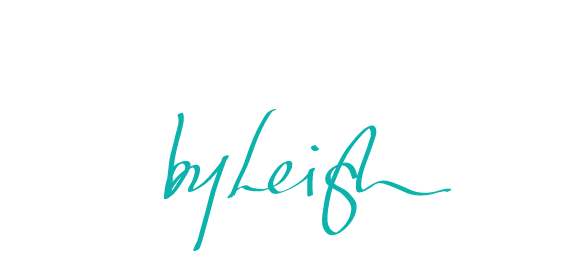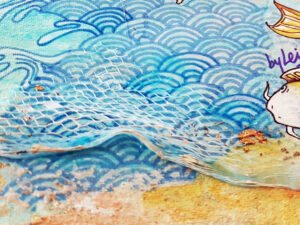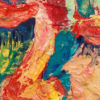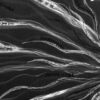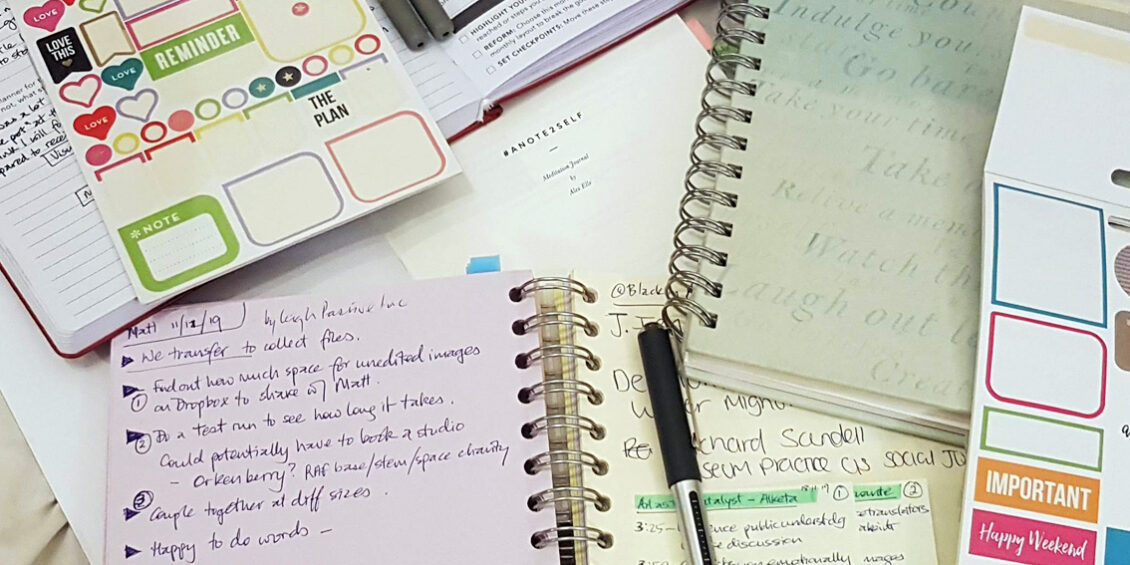
Featured Image: A collection of SLRoss journals
08 Dec 2019
A bit late in the day but here we are. Almost 10 blog posts in, it finally occurs to me that hey, maybe I should see if there is anything different about a reflective journal that I should be doing on this blog platform. Yes, I too am noticing a trend. Presume first, research later.
Note to Self – Look first, jump after. It’s good for survival in general. Try it Stacey, please!
Self-flagellation aside, Gray and Malins confirm that a reflective journal is an excellent way to “capture the dynamic and reflexive nature of practice… Invaluable for the regular documentation of the application of methods and evaluation of their outcomes.” (Gray and Malins, 2017, pp. 114) which is precisely what I need to synthesize all the information I will be getting from practice reviews and interviews about curation methods that achieve what I want. They go on to say –
“Reflective journaling can provide a purposeful process and framework for contributing to these developments [e.g. models of practice, interdisciplinarity, collaboration, professionalism]. ‘Knowing’ about professional practice is dynamic and demands a complementary method of capturing that dynamism which is flexible, responsive, improvisational, reflexive. A reflective journal, or something like it, is a useful device.” – Carol Gray and Julian Malins (Gray and Malins, 2017, pp. 59)
and
“Your journal (in whatever form it takes) should now be a key tool for planning, describing, evaluating, summarizing your thoughts and feelings about your research.”
– Carol Gray and Julian Malins (Gray and Malins, 2017, pp. 87)
Apologies for the slight repetitive nature of those quotes but they do hammer home the point. Still, what do other authors have to say about the use of reflective journals? Here are some formal definitions I found.
“A reflective journal is an account of your work in progress, but more essentially an opportunity for reflection on the learning experience. It should provide you with a means of engaging critically and analytically with the journey” – Warwick University Undergraduate Student Handbook 2019/20 (Institute for Advanced Teaching & Learning, 2019, pp.11–12)
and this one
“A personal reflective journal may be valuable to student teachers for developing metacognitive abilities and for promoting their self-orientation and responsibility for the processes of their personal and collaborative learning. Through reflection, students become aware of their thoughts, positions, and feelings in relation to learning and to the learning community” – Bilha Bashan and Rachel Holsblat (Bashan and Holsblat, 2017, pp.2)
After reading these I was happy that I was fulfilling the requirements for using a Reflective Journal. I did not journal every day, only when I had taken in some new information, or needed to think through some idea or concept. It is an exercise that came naturally to me which is one of the reasons I chose to do it.
The other reason I chose Reflective Journaling was because it seemed a great way to synthesize a lot of information outside of my head. I journaled mainly with texts, spider maps or diagrams. For example –
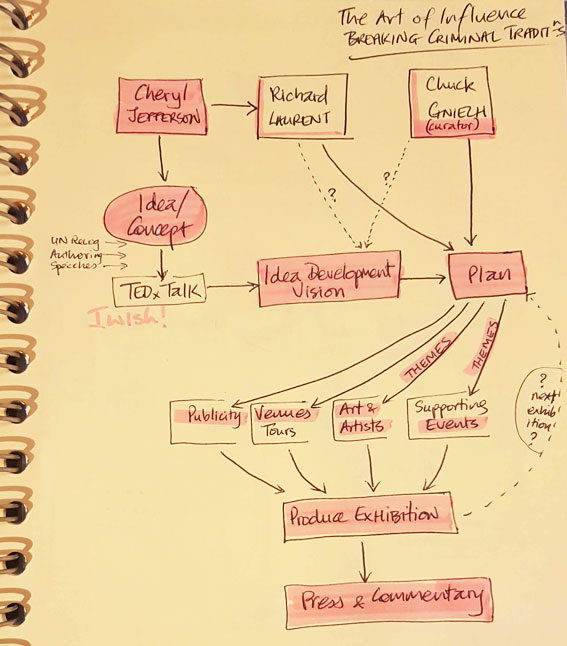
It was a visual way to help me make sense of the relationships within the information I was sorting. The biggest benefits appear to be unearthing insights and synthesising thoughts – a great space for internal analysis, but on a page instead of in your head. I can safely say, I have had many insights from reflecting and journaling as shown in each of these journal entries (click the link to see the entry) e.g. I actually am sadistic enough to like the transcription analysis process, I definitely do not want to do a PhD, I may need to consider how/if/whether to work with a large institution perhaps guerrilla art is the way forward… The insights just keep coming.
28/12/2019 Update
About half way through this project I wondered whether my Reflective Journal was more of an ongoing analysis method more than it was a data collection method.
“Data collection is the process of gathering and measuring information on variables of interest, in an established systematic fashion that enables one to answer stated research questions, test hypotheses, and evaluate outcomes.” (Responsible Conduct of Research, 2003)
My journal definitely helped me to gather information and as I pondered the relationships between bits of data, I was constantly measuring my interest and connection to said data but it was this quote from Data Analysis in Qualitative Research: A Brief Guide to Using Nvivo (Wong Li Ping, 2015) that helped me understand how I was truly using my Reflective Journal to analyse my data.
“Analysing qualitative data entails reading a large amount of transcripts looking for similarities or differences, and subsequently finding themes and developing categories.” (Wong Li Ping, 2015)
This was the space where I was drawing all my ideas, taking random notes, adding tags to tell me which pages to come back to. Then I would take the scrappy notes from my notebook and think them through in the blog that was my online Reflective Journal. The combination worked like a treat to also decide my analysis process. Read more about my process here.
—
References
Bashan, B. and Holsblat, R. (2017). Reflective journals as a research tool: The case of student teachers’ development of teamwork. Cogent Education, [online] 4(1), pp.1–5. Available at: https://www.mybib.com/#/projects/EkPOQY/citations/new/article_journal [Accessed 20 Oct. 2019].
Gray, C. and Malins, J. (2017). Visualizing Research : A Guide to the Research Process in Art and Design. Abingdon, Oxon: Routledge.
Institute for Advanced Teaching & Learning (2019). Undergraduate Student Handbook 2019/20. [online] Coventry: Warwick University, pp.11–12. Available at: https://warwick.ac.uk/fac/cross_fac/iatl/study/ugmodules/student_handbook_2019-20_final.pdf [Accessed 20 Oct. 2019].
Responsible Conduct of Research (2003). Data Collection. [online] Responsible Conduct of Research. Available at: https://ori.hhs.gov/education/products/n_illinois_u/datamanagement/dctopic.html [Accessed 17 Dec. 2019].
Wong Li Ping (2015). Data analysis in qualitative research: A brief guide to using NVivo. Malaysian Family Physician, [online] 3(1), p.1. Available at: https://www.academia.edu/3680103/Data_analysis_in_qualitative_research_A_brief_guide_to_using_NVivo [Accessed 25 Oct. 2019].
